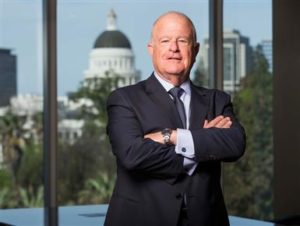State “Culpable” for School District’s Financial Crisis, Says Former County Schools’ Superintendent
Dec 14, 2017
By Ken Epstein
The State of California, which is legally responsible for overseeing the Oakland Unified School District (OUSD) budget, is “culpable” for the ongoing financial crisis caused by lack of fiscal controls and
overspending that came to light at the end of the administration of former Superintendent Antwan Wilson, according to Sheila Jordan, who served as Alameda County Superintendent of Schools for four terms.
Jordan, county superintendent for 16 years from 1999- 2014, told the Oakland Post that she feels compelled to speak out.
“People call me,” she said. “They stop me in the street and ask, ‘What is going on? How is it possible that Oakland is in financial trouble again?’”
She said that the state, acting through a trustee, had one role to play in Oakland – fiscal oversight – and it did not do it.

“They’re culpable,” said Jordan.
“With all the additional spending that was going on, the overspending was extremely visible,” she said.” I believe the state has a great deal of culpability in this current situation.”
When the district went into receivership and was forced to take a $100 million state loan in 2003, then State Superintendent of Instruction Jack O’Connell dissolved the board and appointed a state administrator to operate the district, with a focus on stabilizing the budget.
Until that loan is paid off, the trustee – paid by the district – comes in a couple of days a week to review the local budget and decisions that have financial implications.
The trustee, who reports directly to the state superintendent of instruction, has the power to “stay and rescind,” which means he or she can block district decisions before they are approved by the ad- ministration or board or undo the decisions after they are approved.
In a situation where the trustee has so much power, a recommendation or a few words of advice can carry a lot of weight.
The way it works, she said, is that “the trustee speaks to the board and superintendent and says you can’t do that.”
“They are paying a trustee from the state to have that oversight,” Jordan continued. “It’s not the district’s choice, but rather the state imposes the trustee. It is the trustee’s responsibility is to let the board and superintendent know if there is a problem.”
“To my knowledge, the trustee never contacted the county to say there was a problem or report to the Board of
Education to let the board know there was a problem. There are no reports of the trustee talking to the board.”

The former state trustee, Carlene Naylor, retired soon after the district’s financial crisis became public. She was formerly associate superintendent of business services at the Alameda County Office of Education.
“If expenditures being made were so dangerous to the financial health to the district, why didn’t the state step in? asked Jordan.
The overall fiscal problems resulted from a “lack of leadership.” The district’s responsibility is to ensure that expenditures do not exceed revenue, she said.
In the business office, she said, there is not sufficient staff and expertise, and the school board “has a certain culpability, too, because they needed to tell the superintendent they would not approve the budget.”
OUSD’s current fiscal condition can be traced to the highly contentious state take- over of the district in 2003, according to a number of former district employees and long- time observers who spoke to the Oakland Post.
At the time, State Schools’ Supt. O’Connell and influential State Senator Don Perata were instrumental in putting together a deal requiring the district to accept a $100 million loan, even though it was only $37 million in debt.
OUSD had adequate money on hand in a construction fund that could have temporarily paid off the shortfall, but the state would not allow Oakland to tap into that fund, though the practice was allowed in other districts.
The loan from the state was spent by the state – with no outside oversight. The state administrator, a trainee of the Broad Foundation, spent the money as he saw fit.
No audits were conducted for six years.

A number of Broad interns and trainees have held central office positions ever since the takeover, including former Supt. Antwan Wilson
The Broad (rhymes with load) Foundation and the Broad Academy for training superintendents are central players in school privatization and corporate charter school growth in the U.S., as well in Oakland Unified.
Under state receivership, the district closed 14 schools, and charter schools flourished – now numbering over 40, including a number that are located or co-located at district campuses.
A state-sponsored attempt to turn over the OUSD head- quarters property at 1025 Second Ave. to private real estate developers was quashed, thanks to a public outcry and the efforts of then Mayor Ron Dellums.
The Oakland Post was not able to reach the former trustee for comment.
In reply to the Oakland Post’s questions, a spokesman for the California Department of Education (CDE) wrote:
“The CDE is working with the trustee and the Alameda County Office of Education, which is also responsible for fiscal oversight, to monitor the situation in Oakland very carefully.
“(The) trustee, whose authority is limited solely to monitoring and reviewing the operation of the school district…may stay or rescind an action of the governing board of the school district that, in the judgment of the trustee, may affect the financial condition of the school district.”